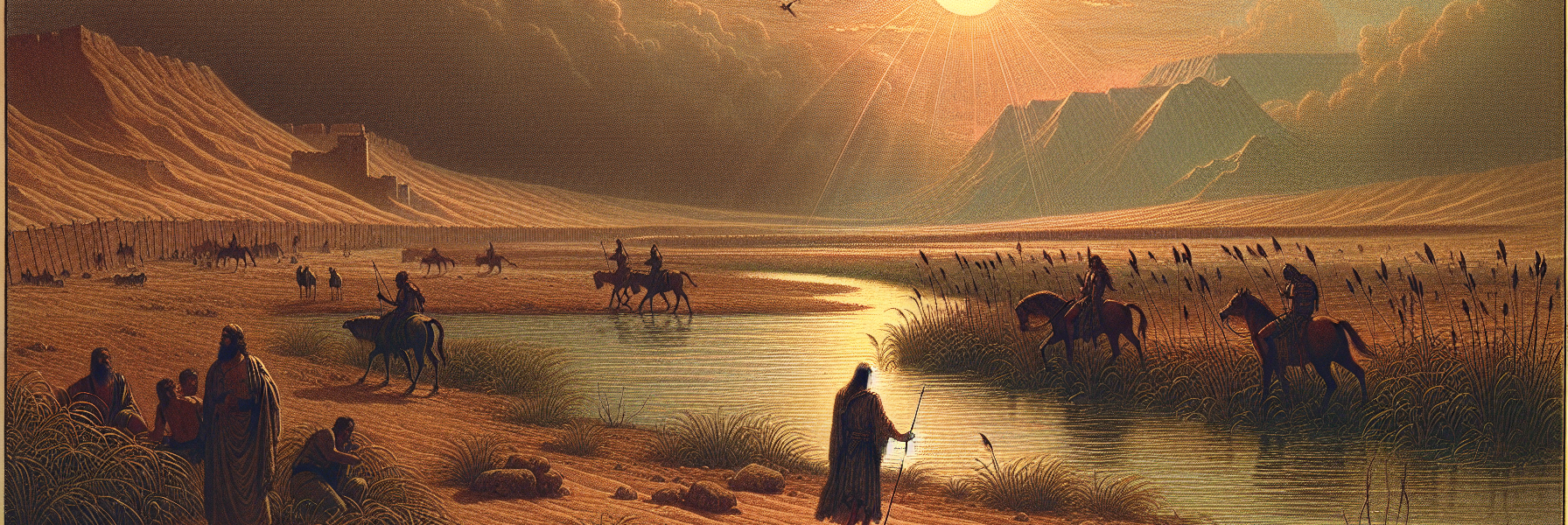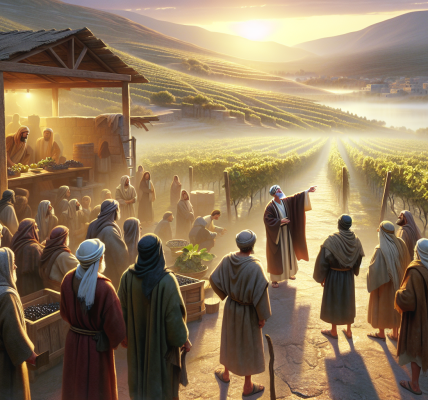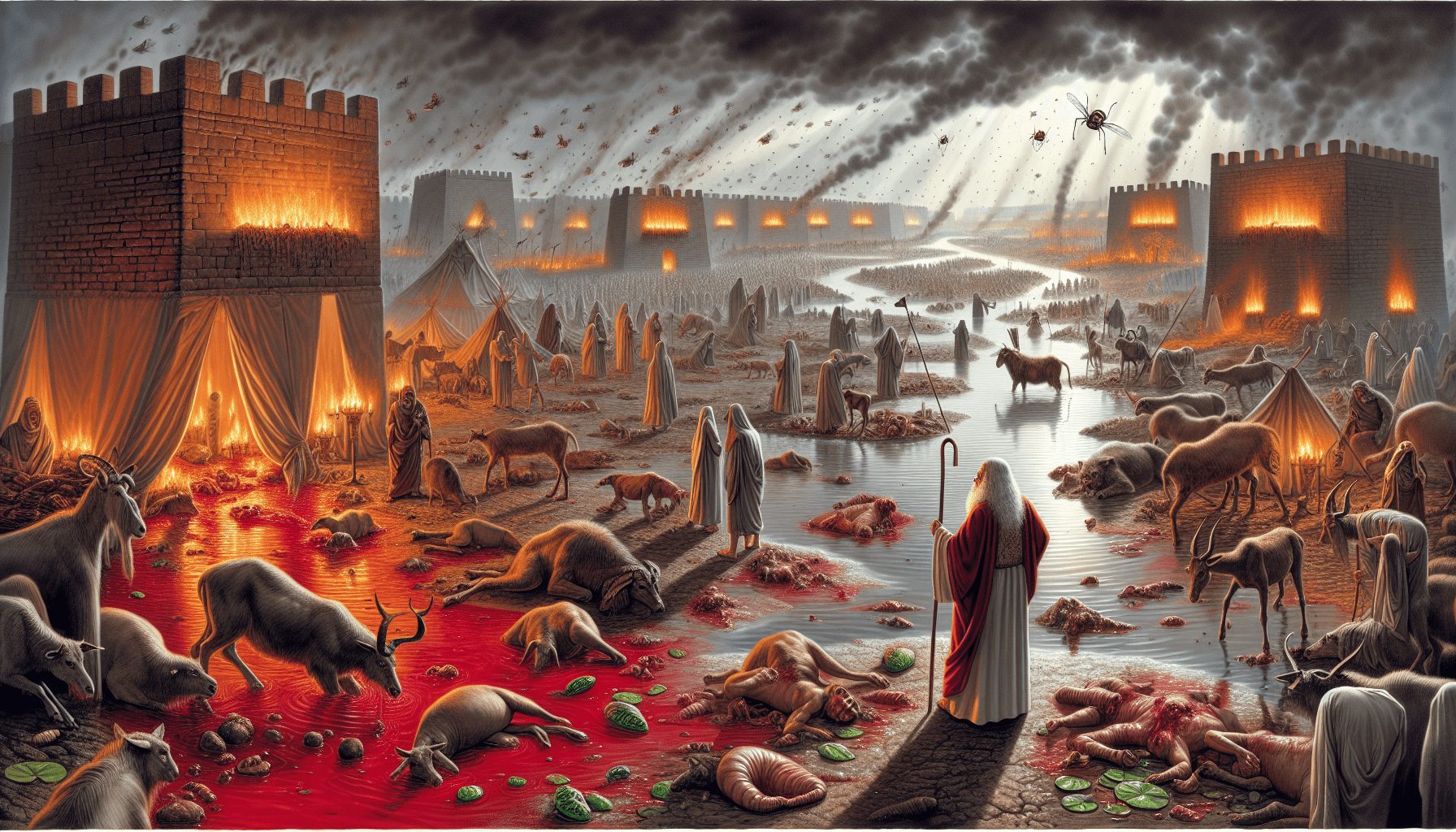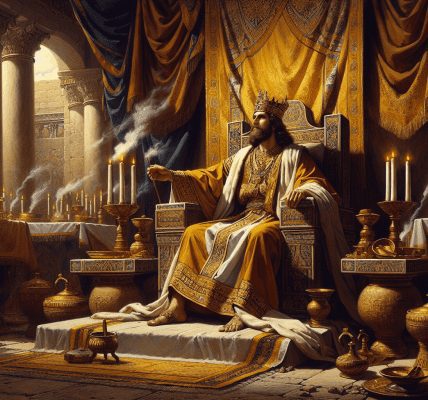**The Call of Ezekiel: A Prophet’s Commission**
The sun hung low over the Kebar River, casting long shadows across the desolate plains of Babylon. The air was thick with the scent of damp earth and distant smoke, a reminder of the exile that had brought God’s people far from their homeland. Among the captives by the river was a priest named Ezekiel, son of Buzi, a man of quiet devotion, though his heart ached for Jerusalem.
On this day, as Ezekiel walked along the banks of the Kebar, the heavens themselves seemed to tremble. A great wind arose, howling through the reeds, and the ground beneath his feet shuddered. Then—unmistakable, overwhelming—the presence of the Lord descended upon him. Before Ezekiel’s eyes, the vision he had seen days before returned in full force: the four living creatures with their many wings, the wheels within wheels, and above it all, the expanse like gleaming crystal, and upon the throne, the likeness of a man, radiant as fiery metal.
Ezekiel fell facedown, his spirit quaking. The voice of the Almighty—like the roar of rushing waters, like the crash of thunder—spoke:
*”Son of man, stand on your feet, and I will speak to you.”*
At once, a force like a mighty hand lifted Ezekiel upright, though his knees still trembled. The voice continued, firm yet filled with divine sorrow:
*”Son of man, I am sending you to the people of Israel, to a rebellious nation that has rebelled against me. They and their fathers have been in revolt against me to this very day. The people to whom I am sending you are obstinate and stubborn. Say to them, ‘This is what the Sovereign Lord says.’ And whether they listen or fail to listen—for they are a rebellious house—they will know that a prophet has been among them.”*
Ezekiel’s breath caught in his throat. The weight of the calling pressed upon him like a millstone. He was to speak to a people who had turned away from God, who had worshiped idols and defiled the holy places. They were hardened in their ways, their hearts like flint. Yet the Lord had chosen him—not to promise immediate deliverance, not to flatter their pride, but to declare the word of the Lord, whether they heeded it or not.
The voice of the Lord continued, warning him of the trials ahead: *”And you, son of man, do not be afraid of them or their words. Do not be afraid, though briers and thorns are all around you and you live among scorpions. Do not be afraid of what they say or be terrified by them, though they are a rebellious house.”*
Ezekiel swallowed hard. He knew the dangers—mockery, rejection, even violence. Prophets before him had been scorned, imprisoned, even slain. Yet the Lord’s command was clear: *”You must speak my words to them, whether they listen or fail to listen, for they are rebellious.”*
Then, before him, a hand appeared, holding a scroll. It unrolled before his eyes, and on both sides were written words of lament, mourning, and woe. The Lord said, *”Son of man, eat what is before you; eat this scroll. Then go and speak to the people of Israel.”*
Ezekiel reached out, took the scroll, and brought it to his mouth. To his astonishment, it tasted as sweet as honey, though its words were bitter. The sweetness was the presence of God, the assurance that though the message was hard, it was divine. The bitterness was the judgment it proclaimed.
Filled now with the word of the Lord, Ezekiel rose, his spirit aflame with holy resolve. He would go to his people, whether they listened or not. He would declare the truth, no matter the cost. For the Sovereign Lord had spoken, and a prophet stood ready to obey.
And so began the mission of Ezekiel—the watchman, the herald, the voice of God to a people in exile.




